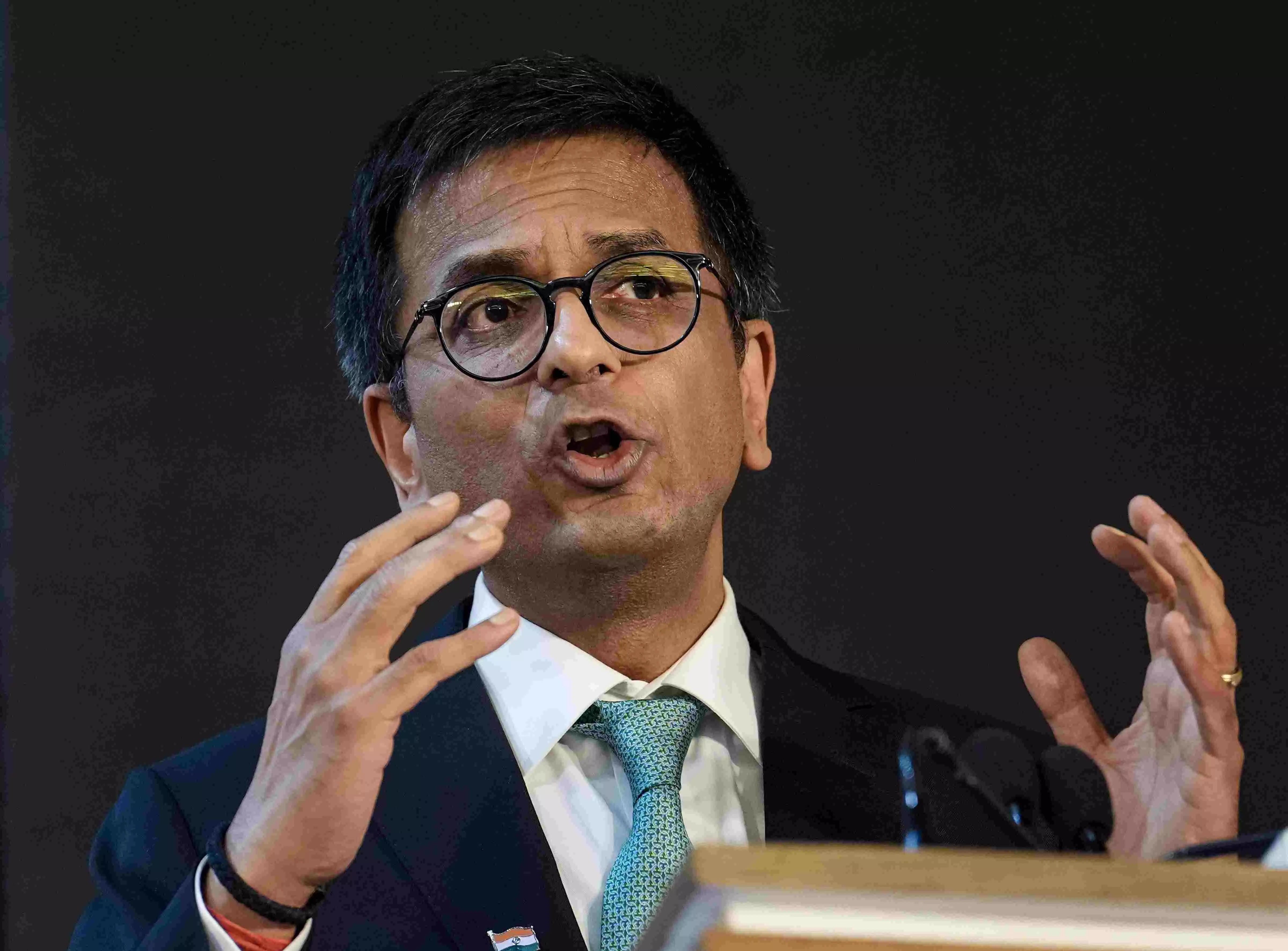CJI Chandrachud refuses to respond to criticism of Article 370 verdict

New Delhi: Chief Justice of India DY Chandrachud on Monday refused to respond to criticism of the unanimous five-judge bench verdict of the Supreme Court upholding scrapping of Article 370 of the Constitution, saying the judges decide a case "according to the Constitution and the law".
In an exclusive interview to PTI, the CJI said the judges speak their mind through their judgement which becomes public property after the pronouncement and people in a free society can always make their opinion about it.
"So far as we are concerned we decide according to the Constitution and the law. I don't think it will be appropriate for me either to respond to the criticism or mount a defence to my judgement. What we have said in my judgement is reflected in the reason present in the signed judgement and I must leave it at that," Justice Chandrachud said.
The response came to a query seeking his views on recent criticism by some jurists, including a former judge, on the Article 370 verdict, which upheld the Centre's August 5, 2019 decision to abrogate the provision bestowing special status on the erstwhile state of Jammu and Kashmir.
On December 11, the top court, while upholding the scrapping of Article 370, ordered restoration of statehood "at the earliest" and set a September 30, 2024 deadline for holding the assembly elections in the present union territory of Jammu and Kashmir.
Settling the decades-long debate over the vexed constitutional provision, the five-judge constitution bench headed by Chandrachud delivered three concurring judgements upholding the abrogation of Article 370 that provided a unique status to Jammu and Kashmir when it acceded to the Union of India in 1947.
CJI Chandrachud said, "Judges who decide a case speak through their Judgement. Once a Judgement is delivered that judgement becomes a public property of the nation. Until a judgement is delivered the process is confined to the judges who are involved in the decision of that case. Once we arrive at a decision and the judgement is pronounced it's a public property. It's a property of the nation. We are a free society."
"We have a Constitution which protects the right to the freedom of speech and expression. And therefore people are entitled to exercise their right to freedom of speech and expression. To critique, to criticise, to appreciate ," he said.
Writing the judgement for himself and Justices B R Gavai and Surya Kant, CJI Chandrachud had ruled that Article 370 was a temporary provision and the President of India was empowered to revoke it in the absence of the Constituent Assembly of the erstwhile state whose term expired in 1957.
"Article 370 of the Constitution read together with Article 1 leaves no manner of doubt that the integration of Jammu and Kashmir as a part of the nation, which in itself was a Union of States, was complete. Any interpretation of Article 370 cannot postulate that the integration of Jammu and Kashmir with India was temporary," the court had held.
Justices Sanjay Kishan Kaul (now retired) and Sanjiv Khanna, who were part of the five-judge bench, had penned separate but concurring verdicts on the issue.
The apex court had also upheld the validity of the union government's decision to carve out the union territory of Ladakh from the erstwhile state of Jammu and Kashmir.



